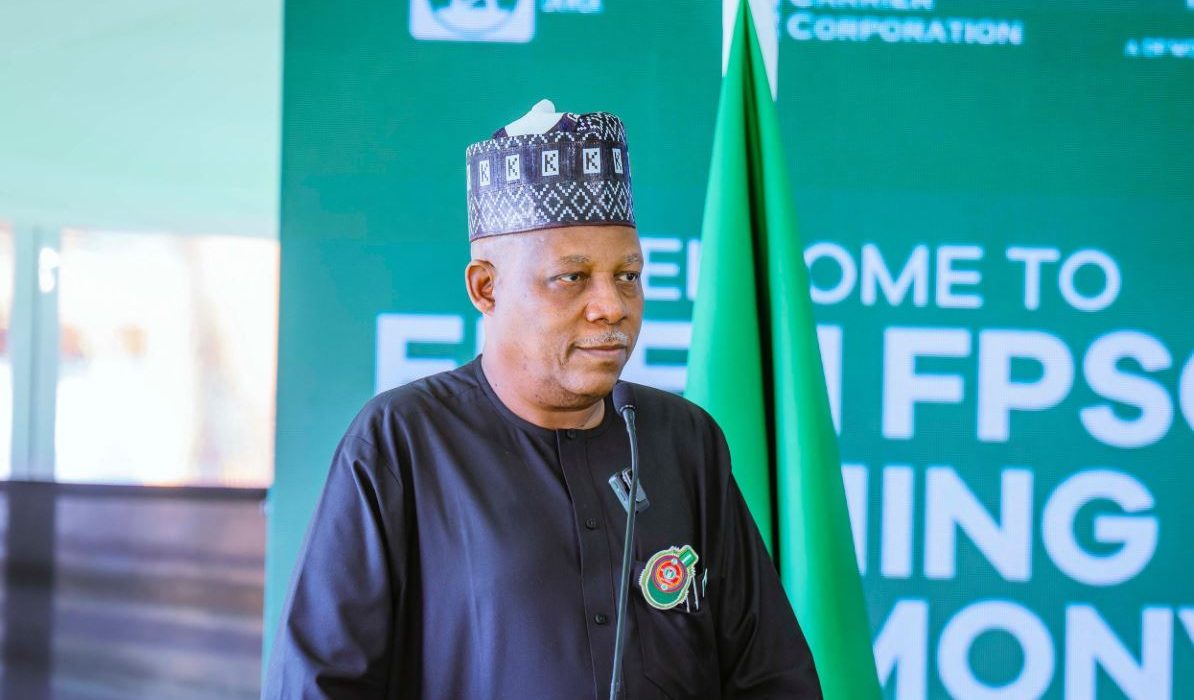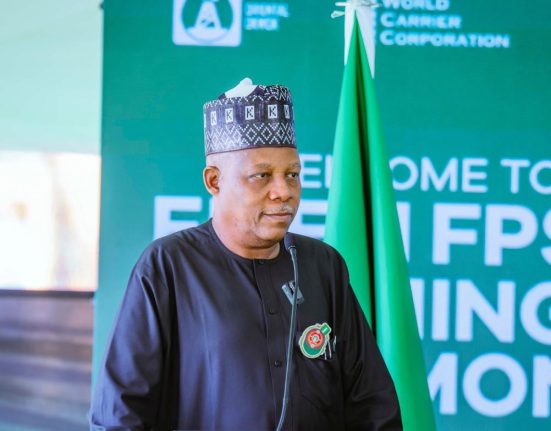ABUJA – Vice President Kashim Shettima has announced a bold move by the federal government to gradually phase out diesel generators across the country, starting with a groundbreaking $60 million plan to transform the Onne Port in Rivers State into Nigeria’s first fully green port.
Speaking at the Decarbonising Infrastructure in Nigeria Summit in Abuja on Wednesday, the Vice President declared that the country cannot afford to keep relying on old ways of generating power, especially when they harm the environment and drain public funds.
“This is a strategic leap,” Shettima said. “Through an integrated hybrid energy system, we will phase out diesel dependency, slash carbon emissions, and provide 24/7 sustainable and affordable power to terminal operators and port users.”
He explained that discussions are already underway with private investors to bring in nearly $60 million to electrify Onne Port using clean and reliable energy sources.
The Vice President stressed that climate action is no longer a luxury for Nigeria but a must for the country’s economy and future survival.
“Nigeria can no longer afford to build yesterday’s infrastructure for tomorrow,” he said, warning that if the country doesn’t take action now, it risks being left behind by the rest of the world.
Shettima noted that the summit was the result of months of talks and planning involving experts and stakeholders who all agreed that making money and protecting the planet must now go hand in hand.
In a statement released by Stanley Nkwocha, the Senior Special Assistant to the President on Media and Communications (Office of the Vice President), Shettima said Nigeria’s climate policies must be backed with real, visible action.
“This summit reflects our belief that the path to net zero by 2060 must be paved with concrete action, not convenient rhetoric,” he said.
He pointed to Nigeria’s Energy Transition Plan and Climate Change Act as tools to guide this new journey, adding that most of the country’s carbon emissions come from key areas like energy, transport, agriculture, and urban development.
“These sectors are not just carbon heavy; they are the lifelines of our economy,” he said, adding that agriculture alone supports over 70 percent of people in rural areas.
“The only way out of the predicted doom is to decarbonise these systems,” he added.
According to Shettima, if Nigeria succeeds in this climate journey, it could create over 1.5 million green jobs by 2035, open up new global markets in clean energy, and become a leader in climate-friendly business in Africa.
“We are not here to fantasise. We are here to finance, to mobilise, to de-risk, to build,” he said. “The Nigeria we want cannot be realised on diesel generators and fragile grids.”
He revealed that the government would soon launch a Green Investment Portal to connect climate-friendly projects with funding from investors and development partners. He also called for stronger policies and better coordination between government sectors to push the green agenda forward.
“Decarbonisation must not stop at Abuja’s gates. It must reach every local government, every community, every home,” he said.
Earlier at the summit, the Director General of the National Council on Climate Change, Dr Nkiruka Maduekwe, said Nigeria may not be one of the biggest polluters, but it is among the most affected by climate change.
“Although Nigeria’s contribution to global emissions is small, we are disproportionately affected due to our geographic location and low adaptive capacity,” Maduekwe said.
She mentioned that Nigeria must adopt smart agriculture, embrace renewable energy, and manage its land better to help absorb more carbon from the atmosphere. She also called for more investment from the private sector to help fix Nigeria’s broken energy and transport systems.
Musaddiq Mustapha Adamu, Personal Assistant to the President on Subnational Infrastructure, also spoke at the event. He said the federal government is ready to support states that are working on local solutions for climate change and green growth.
“Today’s summit is not just about emissions,” Adamu said. “It is about equity, economic survival, and building a future where infrastructure restores hope, uplifts society, and empowers the young, the poor, and the marginalised.”

